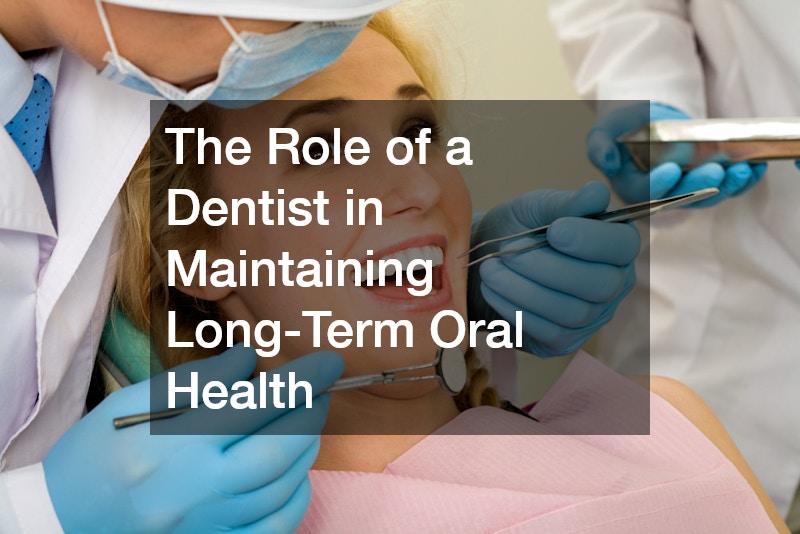Regular dental visits are more than a necessity; they are an investment in your overall well-being and long-term financial health. While many view dental appointments as optional or only necessary when experiencing pain, the reality is that consistent dental care can prevent extensive, costly treatments. This article delves into the significant savings and health benefits that can be achieved by visiting your dentist twice a year.
Is It Really Necessary to Visit the Dentist Twice a Year?
The Importance of Preventive Care
Preventive dental care is critical in maintaining oral health and avoiding more severe issues down the road. By regularly seeing a dentist, you diminish the likelihood of needing extensive procedures such as root canals or extractions.
These visits help in preserving the integrity of your teeth and gums through early interventions, ultimately offering substantial financial savings.
Regular check-ups enable your dentist to catch signs of decay and gum disease before they require intensive treatment. Routine care can prevent issues that would require costly procedures if allowed to progress unchecked. A small filling done today is far more cost-effective than a crown or implant demanded by prolonged neglect.
The cost of preventive care is comparatively minimal in contrast to the substantial bills that accompany major dental work. According to the American Dental Association, the cost of consistent preventive care can be substantially lower than corrective procedures, up to four times less by some estimates. These savings underscore the need for regular dental visits as a proactive approach to managing oral health expenses.
Professional Cleaning vs. At-home Care
While at-home dental care, including brushing and flossing, is integral to maintaining oral hygiene, it is not sufficient alone. Professional cleanings performed during dental visits reach areas that regular toothbrushes and floss cannot clean, eradicating plaque and tartar buildup that can lead to more significant issues over time.
Professional dental hygienists utilize specialized tools and techniques that are not feasible at home, ensuring a deeper clean. While individuals might practice excellent home care, only professional cleanings can remove hardened plaque (tartar) which, if unchecked, can lead to periodontal disease and subsequent costly treatments.
The lifetime maintenance of your oral health through professional dental cleanings can help avert heart disease, as recent studies link dental health to cardiovascular wellbeing. The added layer of professional care bridges the gap left by at-home practices, reducing the long-term costs of mismanaged oral health.
Can Dental Visits Detect Problems Early?
Early Detection of Oral Issues
Regular dental examinations furnish vital opportunities to identify oral health issues before they become severe. Conditions like cavities, enamel wear, and gum disease are often painless in their early stages but can evolve into significant problems if left untreated, necessitating more intensive, expensive interventions.
The bi-annual visits act as a preventive strike against potential oral health crises by permitting early detection of minor cavities or the onset of gum disease. By treating these problems early, you avoid complex procedures like root canals or periodontitis treatment, which can burden you financially.
Emphasizing early detection, each dental visit can potentially prevent thousands in future reparative costs. Consistent monitoring not only allows for immediate corrective action but aligns with financial prudence by limiting the extent and expense of necessary dental interventions.
The Role of Technology in Early Detection
Advancements in dental technology have transformed how dentists identify and treat oral health issues. During routine visits, tools like digital x-rays provide accurate diagnostics with minimal radiation exposure, allowing detailed examination beyond the surface, aiding in early disease interception.
Laser technology in modern dentistry offers minimally invasive solutions for detecting cavities and assessing gum disease. These tools can identify demineralization even before cavities fully form, offering critical cost-saving preventive measures.
Integrating these technologies in regular check-ups not only improves precision but also reduces treatment times and costs. The employment of such cutting-edge tools exemplifies the value of consistent dental care, accentuating its role in maintaining oral and financial health.
How Do Regular Dental Visits Affect Overall Health?
Connection Between Oral Health and General Health
Oral health is intrinsically linked to overall health, with potential implications for a myriad of systemic conditions. The mouth serves as a portal to the body, making oral hygiene pivotal in preventing infections that may lead to more complex health issues, further escalated by poor dental maintenance.
For instance, periodontitis is associated with increased risks of cardiovascular disease, diabetes complications, and adverse pregnancy outcomes. Regular dental visits can mitigate these risks by keeping oral infections and inflammations at bay, thus promoting holistic health.
The cost-benefit of regular dental visits extends beyond dental savings, contributing to decreased healthcare expenditures. By maintaining comprehensive oral health, individuals are less susceptible to broader health complications, reflecting substantial overall health care cost reductions.
Cost Implications of Neglecting Oral Health
The financial burden of ignoring dental health is not limited to the mouth alone. Poor oral hygiene can precipitate a cascade of health issues, necessitating treatments that expand far beyond dental care, such as cardiovascular or metabolic disorders.
Ignorance of oral health maintenance potentially leads to magnified healthcare needs, evidenced by the rising costs of treating conditions like oral cancer or surgical interventions required for advanced periodontal diseases. These expenses underscore the importance of preventive care highlighted in regular dental visits.
Financially savvy individuals should recognize that consistent dental appointments are a proactive strategy against escalating health-related expenses. Such diligence offers an indirect yet powerful method to safeguard personal finances by averting expensive comprehensive treatments necessitated by neglected oral health.
Schedule an Appointment Today
In summary, visiting your dentist twice a year is an investment in your health that yields both financial and physical dividends. The benefits far outweigh the costs by preventing extensive treatments, leveraging advanced technology for early detection, and supporting overall health. Commit to regular dental care, enhancing both your smile and your fiscal well-being.



